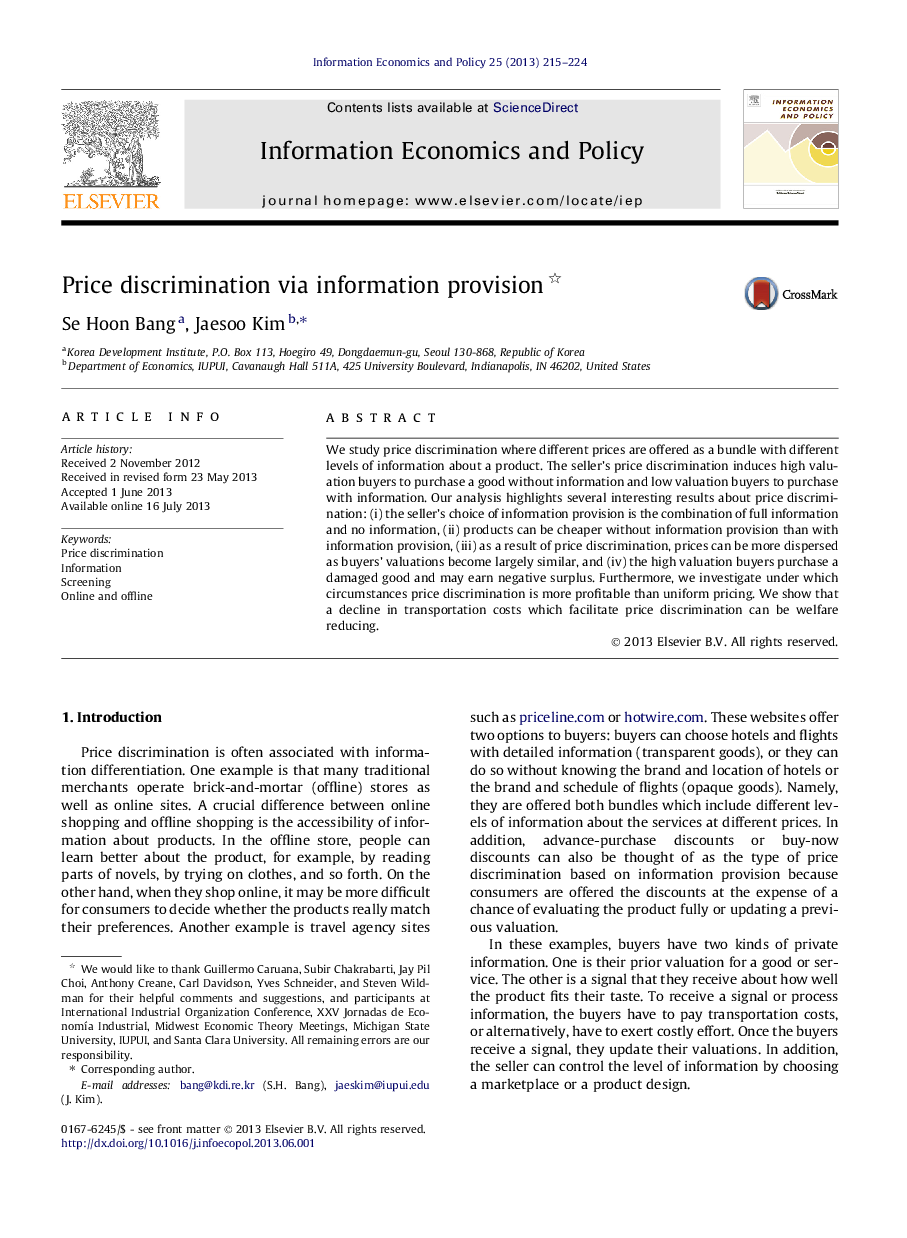| Article ID | Journal | Published Year | Pages | File Type |
|---|---|---|---|---|
| 5075840 | Information Economics and Policy | 2013 | 10 Pages |
Abstract
We study price discrimination where different prices are offered as a bundle with different levels of information about a product. The seller's price discrimination induces high valuation buyers to purchase a good without information and low valuation buyers to purchase with information. Our analysis highlights several interesting results about price discrimination: (i) the seller's choice of information provision is the combination of full information and no information, (ii) products can be cheaper without information provision than with information provision, (iii) as a result of price discrimination, prices can be more dispersed as buyers' valuations become largely similar, and (iv) the high valuation buyers purchase a damaged good and may earn negative surplus. Furthermore, we investigate under which circumstances price discrimination is more profitable than uniform pricing. We show that a decline in transportation costs which facilitate price discrimination can be welfare reducing.
Related Topics
Social Sciences and Humanities
Business, Management and Accounting
Management of Technology and Innovation
Authors
Se Hoon Bang, Jaesoo Kim,
